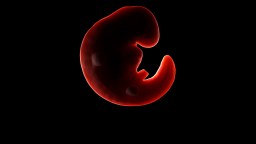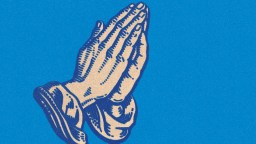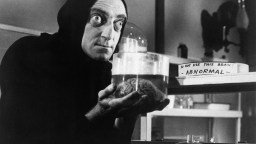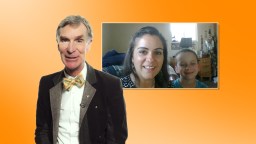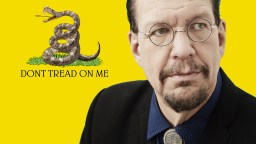All Videos
All Stories
Parasites are more than dormant feeders. Microscopic science is uncovering the ways viruses and bacteria prey on their hosts, influencing them to behave in some very strange ways.
▸
12 min
—
with
Pre-suasion is a method of priming an audience to receive your message more openly. It’s a powerful tool, and one that must be used in an ethical and just manner.
▸
10 min
—
with
The reason for the cultural divide ignited by the Roe v. Wade decision is not necessarily that people have intractable opinions. Instead, the issue of abortion is a genuinely complex moral dilemma.
▸
7 min
—
with
According to Pulitzer winner Charles Duhigg, the art of focus is training your mind to know what it can safely ignore.
▸
7 min
—
with
Developmental psychologist Alison Gopnik has done more than just ‘think of the children’, she wrote a book – and it rules favorably for free play and the end of scholastic parenting.
▸
6 min
—
with
Is the animal kingdom oblivious to our jokes or just a really tough crowd? Bill Nye explores the link between intelligence and humor.
▸
4 min
—
with
As an actor, director, screenwriter, and novelist, Ethan Hawke knows how to get things done. The secret to his success is taking small, progressive steps to a larger goal. It’s just that simple.
▸
4 min
—
with
Right before he goes to sleep every night, staunch atheist Penn Jillette does something surprising. He says a little prayer – sort of.
▸
7 min
—
with
We’re only seeing a fraction of the world around us. Amy Herman teaches the art of perception; if you’re game to test your visual intelligence, take one of her perception challenges here.
▸
5 min
—
with
No pep talks here, just a prediction by innovation expert Alec Ross that gene code and precision medicine is set revolutionize life the same way that computer code has.
▸
4 min
—
with
RIP to the 9 to 5 work day. Kathryn Minshew (CEO of career directory platform The Muse) is pro-unlimited vacation time and offers her employees a 1-month paid sabbatical after five years. How can we all live this dream?
▸
5 min
—
with
Turns out simplicity is really, really complicated. Having worked with Steve Jobs for years as an advertising creative director on Apple products, Ken Segall has taken a blood oath to uphold the principles of simplicity.
▸
9 min
—
with
Think happy, be happy? Maybe not. Harvard psychologist Susan David examines the backlash effect of forced positivity in our lives.
▸
6 min
—
with
The way to a healthy mind is through the stomach, according to psychiatrist Drew Ramsey. The right foods can decrease your risk of depression by 50%, and treat clinical mental disorders.
▸
4 min
—
with
If someone comes back from the future, they ought to have packed one thing in their carry on: proof.
▸
4 min
—
with
Do you know how your iPhone works? Because cybercriminals do. Futurist and global security advisor Marc Goodman explains how our void in tech knowledge lets hackers have a field day, and how to make yourself less vulnerable.
▸
4 min
—
with
Author Jonathan Safran Foer on the two surprising qualities successful writers need.
▸
5 min
—
with
The word parenting, as a verb, has only been around since 1958. Developmental psychologist Alison Gopnik examines when caregiving became the art of hovering, and the pitfalls and anxiety of trying to shape children instead of raise them.
▸
10 min
—
with
1% of all Google searches are health queries. Cyberpsychologist Mary Aiken explains how artificial intelligence diagnostics lead to psychosomatic symptoms, and potentially explain the fourfold increase in iatrogenic death in the US since 1999.
▸
6 min
—
with
Peel off your tin-foil hat like a Hershey’s Kiss, because Bill Nye has a reality check for the alien conspiracy theorists out there.
▸
6 min
—
with
Computer-brain interface technology is progressing faster than medical research can reliably understand how it affects human health over the longterm. Still, the technology is really cool.
▸
5 min
—
with
There’s a lot missing from debates and policy surrounding poverty but the biggest deficit, according to Dr C. Nicole Mason, is in honesty. Impoverished people aren’t poor because they’re lazy, they’re poor because social mobility is institutionally suppressed.
▸
5 min
—
with
George Musser explains the central role of weirdness in physics, and shatters the dreams of those who hope humans can one day tap into psychic powers.
▸
4 min
—
with
Who are you? Good question. Harvard professor Michael Puett explores the idea of the “self”, and how what you believe to be your true nature may actually just be patterns you’ve fallen into.
▸
4 min
—
with
Princeton professor Sean Wilentz explains why America has such a staunch two-party system, which was never part of the Framers’ plan.
▸
2 min
—
with
Penn Jillette just got born again – but don’t fortify the gates of heaven just yet, because it’s his atheism that he’s renewed, to account for blanket religious vilification and hate politics.
▸
13 min
—
with
Bill Nye tackles a tough question that every person alive has been hung up on – what happens after we die? Where does our life energy go?
▸
4 min
—
with
Take a deep breath, you’re in for a ride. Here is Penn Jillette on Libertarianism, taxes, Trump, Clinton, Sanders, Gary Johnson, sex, drugs and Kurt Cobain.
▸
18 min
—
with
Former FBI negotiator Chris Voss sheds light on communication and indirect messages, the value of empathy in business and in life, and when and how to walk away from a deal.
▸
2 min
—
with
A lot of us are banking on heaven for ourselves and hell for certain others, but spiritual teacher Rob Bell urges us to think about those concepts as states of consciousness, and rethink the nature of the afterlife.
▸
4 min
—
with


